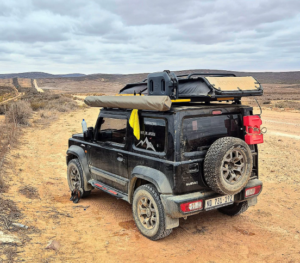Social activist and copywriter, Tahiya Moosa (28), formerly of Durban, has lived in Turkey for five years. She volunteers at an NGO involved in youth empowerment. She tells why Istanbul holds so much appeal.
When I first moved to Istanbul five years ago, the question most friends and family asked was ‘Why Turkey?’ At that time my answer was somewhat blurry.
But before the move to Turkey, I had spent several months teaching English in the Balata Refugee Camp in the West Bank, in Palestine. The idea of staying long-term in the Occupied Territories was daunting, so when my stint was up, I returned home to South Africa.
I remember vividly the nightly curfews and increasing tensions when Gaza came under bombardment by Israeli forces. That’s when I started receiving calls from my family urging me to return home. For my family, the live TV images of Gaza under attack was too much to bear – and I didn’t want to put them under any more stress and anxiety, and made a decision to return to Durban.
At 23 I wanted to remain in the ‘Middle East’, but for the sake of my parents, needed to find a country with lesser conflict – and Istanbul jumped up in my head.
In November 2014, at 24 years old, I relocated to Istanbul to start a job as an English second-language teacher. I remember arriving in this city and being enamored with the extensive history around me, this unique ‘bridge’ between east and west. For someone from South Africa, being exposed to cobbled streets and the Constantinople-era buildings of the Old City, I was in love.
I was besotted by the romance of the Bosporus, the rose gold sunsets, the old-worlde charm of the ferries shuffling back and fourth between Asia and Europe. What I loved most about Istanbul was the fusion of cultures and the coexistence of its people, whether secular or religious, living together in harmony. My intention was to work there for a bit, little realizing that this captivating city would become my new home. How long? As long as Istanbul will have me, I suppose.
It thrilled me to find young people like myself who were passionate about politics, with a strong belief in democracy and their countries continuous journey towards it. I immediately felt that being here in Istanbul was my destiny. Because it was here that I found the group of people that would inspire me to pursue my Masters degree.
In 2015 I bumped into a young American-Iranian man by the name of Teymour. He was heading up a group of young expats and locals who were dedicated to affecting positive change in vulnerable communities around Istanbul. This small group of people would soon grow exponentially and become a fully-fledged NGO, now known as Istanbul&i.
Through Istanbul&i, my dream of becoming more than just an activist began. I had the opportunity to work on wide range of innovative projects, the first being as a co-director on our first ever Social Impact Summit.
The aim of the two-day summit in 2016 was to foster youth empowerment by encouraging young people with a passion and commitment to social inclusion, to become the next change makers in their community. We hosted capacity building workshops by professionals across all industries, helping these budding humanitarians develop their own social impact ideas. We wanted to help break stereotypes and this was our platform.
I remember feeling overwhelmed and inspired by these young people like myself who were fueled with motivation and dedicated to empowering themselves and their communities. Our members came from over 63 countries, including refugees from just about every Middle Eastern country, making their involvement that much more impactful.
Fast-forward two years and an MA in International Relations, I am back exactly where I started and still equally captivated by the charm of glorious Istanbul, the city where east meets west, the meeting spot for the downtrodden of the globe, the safe haven for so many millions of displaced people…
Although it may have its own problems, Istanbul continues to dazzle me. As Napoleon Bonaparte once said, “If the Earth were a single state, Istanbul would be its capital.”


